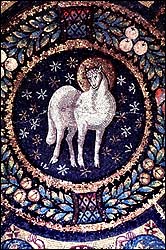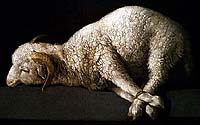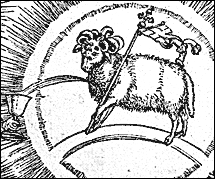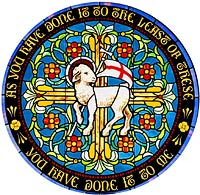| The Beatitudes - Historical Cultural Context 1st Reading: Zephaniah 2:3; 3:12-13 Responsorial Psalm: 146:6-7, 8-9, 9-10 2nd Reading: 1 Corinthians 1:26-31 Gospel: Matthew 5:1-12a |
| HONOR IN THE BEATITUDES |
| The most basic piece of information that a modern Western believer should learn about the Mediterranean world of Jesus is that honor, its central value, drives all behavior. Honor is a public claim to worth and a public acknowledgment by others of that claim. BEATITUDES The more than eighty “beatitudes” sprinkled throughout the Old and New Testaments are poetic sayings that present, encourage, and praise honorable behavior. Rather than “happy,” “fortunate,” or “blessed,” the first word in each beatitude should more correctly be translated “truly honorable” or “highly esteemed” (is the one who behaves or thinks thus and so). BEATITUDES IN JESUS’ SERMON Luke (6:17-49) presents what were very likely the “original” three beatitudes Jesus spoke on that occasion; Matthew creatively expands them to eight. Matthew uses the appropriate grammatical form: third person singular (“honorable the one who ...”). Luke gives them a more personally direct orientation by using the second person singular (“honorable are you who . . .”). Matthew’s sermon will occupy our attention from now to the ninth Sunday in this cycle. The three basic honorable and esteemed behaviors offered by Jesus are 1) being poor 2) mourning 3) hungering. “Poor” in the Bible is never an economic designation. It rather describes someone who has temporarily lost honorable status and must seek at all costs to regain but never surpass that status. “Poor” thus refers to a revolving class of people. The customary association of poor with widows and orphans confirms this notion of losing status. Widows and orphans did not have to retain this position forever. Widows could remarry (see the serious discussion of “real” widows in 1 Tim 5:3-16); orphans could be reabsorbed into an extended family. Those who lost status were culturally obliged to regain it. There are, however, two distinctive elements in Jesus’ beatitudes. 1) First, he says being poor constitutes true honor! 2) Second, the passive voice in each beatitude (“will be comforted,” “be filled,” etc.) is a strategy used by our ancestors in the faith to avoid saying the name of God. Those who engage in social protest (mourning and fasting) will be comforted by whom? By God, of course! This grammatical usage in the Hebrew and Greek Bible is called, appropriately, the “theological or divine passive voice.” In Jesus’ view, true honor and esteem are determined and bestowed by God, very publicly, for all to see. And the things that God considers truly honorable and worthy of praise are almost always the opposite of what human beings of any culture think. Though modern American believers are not driven by the values of honor and shame as is the Mediterranean world, crises often indirectly reveal our genuine assessment of values. The survivors of a hurricane will say again and again that life is more precious than possessions. Yet given new opportunities, many would return to collecting material possessions and resuming conspicuous consumption. These are, after all, signs of American “honor.” Our culture, which is tragically devoid of God, esteems a way of life that is in direct contradiction to God's ways. . . . all the more reason to be in the world but not if it. 1st John 2:15 - "Do not love the world or the things of the world. 7 If anyone loves the world, the love of the Father is not in him." That only becomes more important as time goes by. This article has been edited by Soutenus Original Author: John J. Pilch of Georgetown University This Scott Hahn's reflection on the readings. "The Blessed Path" Listen Here! In the readings since Christmas, Jesus has been revealed as the new royal son of David and Son of God. He is sent to lead a new exodus that brings Israel out of captivity to the nations and brings all the nations to God. As Moses led Israel from Egypt through the sea to give them God’s law on Mount Sinai, Jesus too has passed through the waters in baptism. Now, in today’s Gospel, He goes to the mountain to proclaim a new law - the law of His Kingdom. The Beatitudes mark the fulfillment of God’s covenant promise to Abraham - that through his descendants all the nations of the world would receive God’s blessings (see Genesis 12:3; 22:18). Jesus is the son of Abraham (see Matthew 1:1). And through the wisdom He speaks today, He bestows the Father’s blessings upon “the poor in spirit.” God has chosen to bless the weak and lowly, those foolish and despised in the eyes of the world, Paul says in today’s Epistle. The poor in spirit are those who know that nothing they do can merit God’s mercy and grace. These are the humble remnant in today’s First Reading - taught to seek refuge in the name of the Lord. The Beatitudes reveal the divine path and purpose for our lives. All our striving should be for these virtues - to be poor in spirit; meek and clean of heart; merciful and makers of peace; seekers of the righteousness that comes from living by the law of Kingdom. The path the Lord sets before us today is one of trials and persecution. But He promises comfort in our mourning and a great reward. The Kingdom we have inherited is no earthly territory, but the promised land of heaven. It is Zion where the Lord reigns forever. And, as we sing in today’s Psalm, its blessings are for those whose hope is in the Lord. Yours in Christ,  Scott Hahn, Ph.D. |
~~~~~~~~~~~~~~~~~~~~~~~~~~~~~~~~~~~~~~~~~~~~~~~~~~~~~~ To Be Blessed: An Attitude A wonderful article by Pat Gohn Edited by Soutenus They teach us the way that Jesus wants us to be. The Beatitudes give us choices to deliberately "be more" than minimalists or skimmers of the surface of life. They dare us to believe in the necessity of being a blessing now in exchange for a blessing yet unseen. This is no immediate transaction. The return on one's investment is in the hands of God. When we listen to this Gospel at Mass this weekend, we will be challenged to be like Jesus. To be like Jesus is to reflect his countenance, and to be his charity in the world. Just think about the face of Jesus and picture his example in each of the Beatitudes. Jesus is a living portrait of how "to be " human. He models the attitudes and dispositions that make up a life of love and service. Finally, the words of the Beatitudes are more than just a listing of good advice or proverbial wisdom. They point out the path to happiness both in this life and the next. God's creation of us destined us for beatitude. We were made for more: We were made for happiness. In fact the Catechism of the Catholic Church says our vocation is beatitude—happiness, supreme blessedness. The Beatitudes respond to the desire for happiness that God has placed within our hearts. In a surprising paradox, we find that the things we fear might make us unhappy really do just the opposite! St. Thomas Aquinas taught that "God alone satisfies." That's why Heaven is the goal of life. The Beatitudes point to the beatitude of Heaven. But until we can achieve such a magnificent destiny, following God's way now will bring us a glimpse of heaven's happiness on earth. It is the unfolding of blessedness in our midst. Pat Gohn is a writer, speaker, and host of the Among Women podcast and blog. She holds a Masters in Theology, and a Bachelors in Communications. Her passion is working within the sphere adult faith formation both in parish life and in using media for evangelization and catechesis. Find more at PatGohn.com. |










